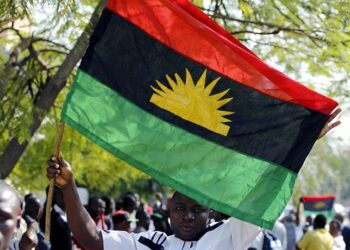Nigerian petrol marketers have implemented significant price increases at their depot facilities as escalating tensions between Israel and Iran continue to drive global crude oil prices higher, with oil prices jumping on Friday and settling 7% higher as Israel and Iran traded air strikes, feeding investor worries that the combat could widely disrupt oil exports from the Middle East.
Ten major marketers, including Dangote Petroleum Refinery, Aiteo, and Pinnacle, have adjusted their depot prices upward following crude oil’s surge from $68 to $74 per barrel—an 8.8% increase that reflects growing market anxiety over potential supply disruptions.
The price adjustments vary across marketers, with MENJ recording the steepest increase from ₦810 to ₦850 per litre, while Ever implemented the most modest adjustment from ₦866 to ₦870 per litre. Dangote Petroleum Refinery raised its depot price from ₦830 to ₦840 per litre, joining other major players including Swift, Rainoil, First Royal, Emadeb, and First Fortune in implementing the increases.
The current market volatility stems from Iran’s threats to block the Strait of Hormuz, a critical maritime chokepoint responsible for transporting over 20% of global oil and gas supplies. An Iranian lawmaker said closure of the Strait of Hormuz, a critical chokepoint in the global energy trade, was under serious consideration.
Recent developments show oil markets remain highly sensitive to geopolitical developments. On Friday, West Texas Intermediate futures and international benchmark Brent crude settled at $72.98 and $74.23 per barrel, respectively. Both pared overnight gains that saw prices spike more than 13%.
Maritime and energy experts warn that any disruption to the strait could have catastrophic effects on global trade and energy supplies. Oil prices could surge from a current level of about $73 per barrel up to $120 per barrel if the Israel-Iran conflict damages Iranian oil infrastructure or impedes the passage of some oil tankers in the Strait of Hormuz, according to energy analysts.
Dr. Muda Yusuf, Director of the Centre for the Promotion of Private Enterprise (CPPE), expressed concern about the implications for Nigeria’s economy. “The war introduces troubling dimensions to an already unstable global economy,” he said. “For Nigeria, the implications are mixed—presenting both risks and opportunities.”
Yusuf highlighted the inflationary pressures that rising energy costs will create. “These rising energy costs will feed directly into inflation,” he noted. “We also expect imported inflation due to the global impact of higher energy prices.”
The economist warned of broader economic consequences, stating: “While Nigeria may benefit from higher oil revenues, there’s also a risk of monetary expansion from oil monetization, which could destabilize the exchange rate. However, historically, there’s a positive correlation between higher crude prices, GDP growth, and the Nigerian stock market. If oil prices stay high, the outlook for the market could improve.”
Professor Wumi Iledare, a petroleum economist, described the situation as presenting both opportunities and challenges for Nigeria. “For Nigeria, the world’s 15th-largest oil exporter, this price surge offers a potential windfall in foreign exchange and budget support,” he said. “But risks remain, and Nigeria must maximize this opportunity while managing the challenges that come with such volatility.”
Global financial institutions are closely monitoring the situation. Analysts at JPMorgan warned earlier this week that an all-out conflict between Israel and Iran, one of the world’s largest oil producers, could send oil prices above $100 for the first time since Russia’s invasion of Ukraine disrupted global supply in 2022.
Goldman Sachs estimates that Brent crude would climb above $90 a barrel before declining back to between $60 and $70 next year in scenarios involving sustained conflict.
According to industry reports, the instability in global oil markets may lead to continued increases in depot prices in the coming weeks. The Organisation of Gas Producers and Suppliers Association of Nigeria (OGSPAN) has projected that the oil price spike could significantly impact Nigeria’s 2025 budget, offering potential revenue boosts.
However, experts caution that unless Nigeria significantly improves its crude output and stabilizes domestic refining capacity, the benefits from higher oil prices may be short-lived. The current situation underscores Nigeria’s continued vulnerability to global oil market volatility and the urgent need for economic diversification.
Market observers note that these price movements reflect not only short-term supply concerns but also the addition of a geopolitical risk premium due to fears of broader regional conflict, suggesting that oil price volatility may persist as long as Middle East tensions remain elevated.




















